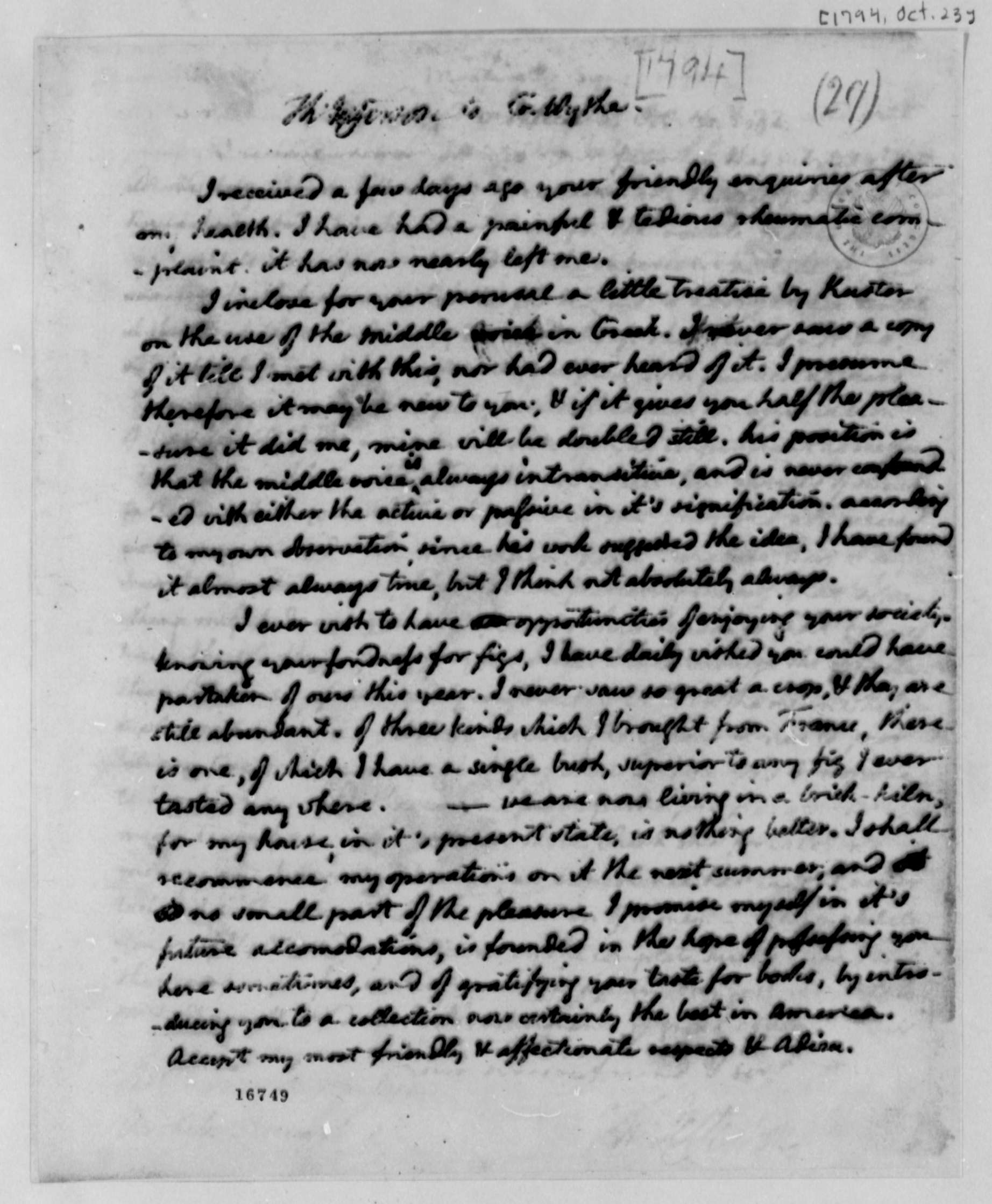Thomas Jefferson to Wythe, 24 October 1794
Thomas Jefferson told George Wythe that he had been experiencing some rheumatism, but he was better by the time he responded to the letter. He enclosed a book in Greek written by Ludolph Küster, a German classical scholar. He had never seen or heard of the copy before and assumed that it would be new to Wythe as well. Jefferson said that he greatly enjoyed it and hoped that Wythe would too. Jefferson talks about his fig crop and the state of his home.

"Thomas Jefferson to Wythe, 24 October 1794." Image from the Library of Congress, The Thomas Jefferson Papers.
Letter text
I received a few days ago your friendly enquiries after my health. I have had a painful & tedious rheumatic complaint. it has now nearly left me.
I inclose for your perusal a little treatise by Kuster on the use of the middle voice in Greek. I never saw a copy of it till I met with this, nor had ever heard of it. I presume therefore it may be new to you; & if it gives you half the pleasure it did me, mine will be doubled still. his position is that the middle voice is always intransitive, and is never compounded with either the active or passive in it’s signification. according to my own observation, since his work suggested the idea, I have found it almost always true, but I think not absolutely always.
I ever wish to have opportunities of enjoying your society. knowing your fondness for figs, I have daily wished you could have partaken of ours this year. I never saw so great a crop, & they are still abundant. of three kinds which I brought from France, there is one, of which I have a single bush, superior to any fig I have ever tasted any where. – we are now living in a brick-kiln, for my house, in it’s present state, is nothing better. I shall recommence my operations on it the next summer, and
it isno small part of the pleasure I promise myself in it’s future accommodations, is founded in the hope of professing you have sometimes, and of gratifying your taste for books, by introducing you to a collection most certainly the best in America. Accept my most friendly & affectionate respects & Adieu.